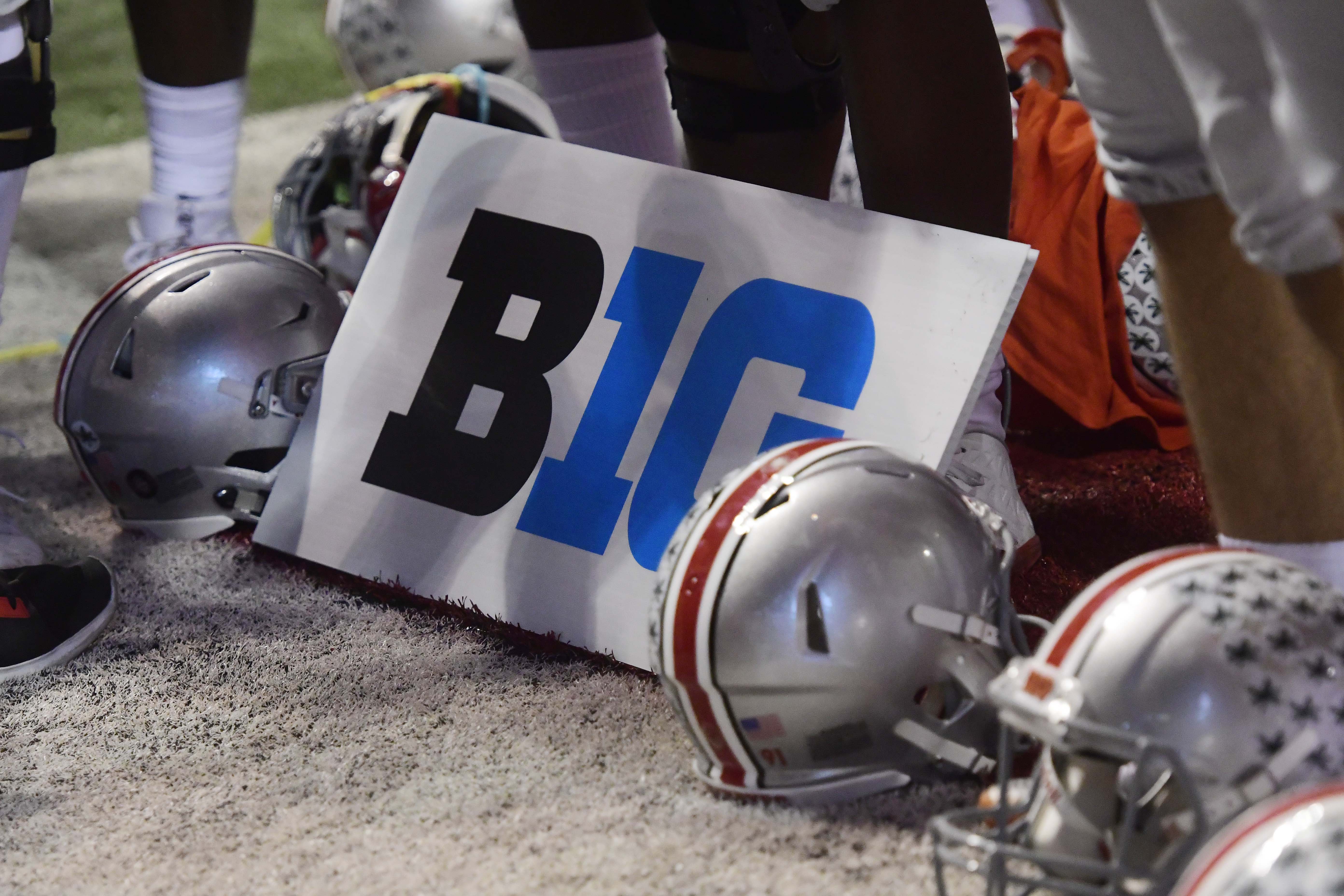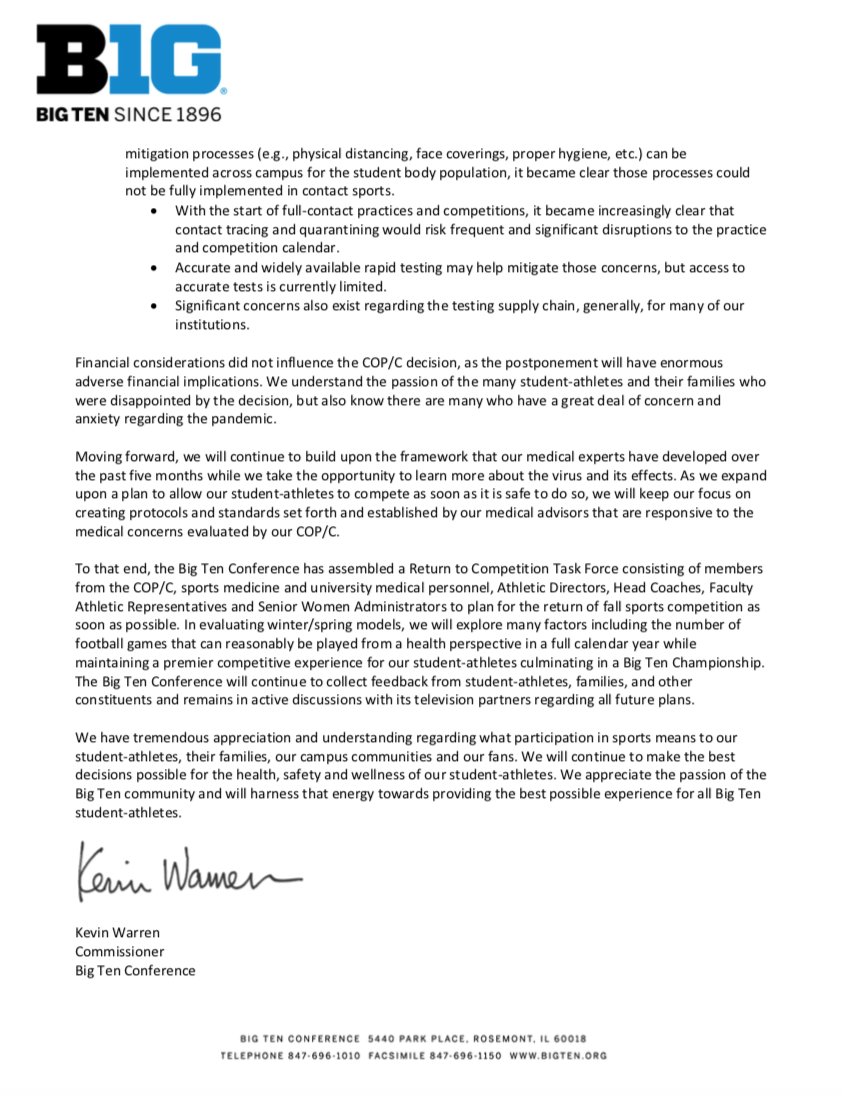Ad Disclosure

B1G commissioner Kevin Warren has released an open letter to the B1G community, eight days after the league announced it was canceling fall sports for the 2020 season. It’s the first released statement since the conference elected to not play any sports during the fall semester.
Warren indicated that a vote was taken on fall sports among B1G presidents and chancellors, and there was overwhelming support to postpone sports until the winter or spring. Despite push from parents and players, Warren’s letter states that the idea will “not be revisited.”
In the letter, Warren also detailed some of the reasons behind the B1G’s decision. From the letter:
Listed below are the primary factors that led to the Big Ten COP/C decision:
- Transmission rates continue to rise at an alarming rate with little indication from medical experts that our campuses, communities or country could gain control of the spread of the virus prior to the start of competition.
- As our teams were ramping up for more intense practices, many of our medical staffs did not think the interventions we had planned would be adequate to decrease the potential spread even with very regular testing.
- As the general student body comes back to campus, spread to student-athletes could reintroduce infection into our athletics community.
- There is simply too much we do not know about the virus, recovery from infection, and longer-term effects. While the data on cardiomyopathy is preliminary and incomplete, the uncertain risk was unacceptable at this time.
- Concerns surrounding contact tracing still exist, including the inability to social distance in contact sports pursuant to the Centers for Disease Control and Prevention (CDC) guidelines. While risk mitigation processes (e.g., physical distancing, face coverings, proper hygiene, etc.) can be implemented across campus for the student body population, it became clear those processes could not be fully implemented in contact sports.
- With the start of full-contact practices and competitions, it became increasingly clear that contact tracing and quarantining would risk frequent and significant disruptions to the practice and competition calendar.
- Accurate and widely available rapid testing may help mitigate those concerns, but access to accurate tests is currently limited.
- Significant concerns also exist regarding the testing supply chain, generally, for many of our institutions.
No other specifics were provided in the letter.
You can read the B1G’s full statement below:
Dustin grew up in the heart of Big Ten country and has been in sports media since 2010. He has been covering Big Ten football since 2014. You can follow him on Twitter: @SchutteCFB

